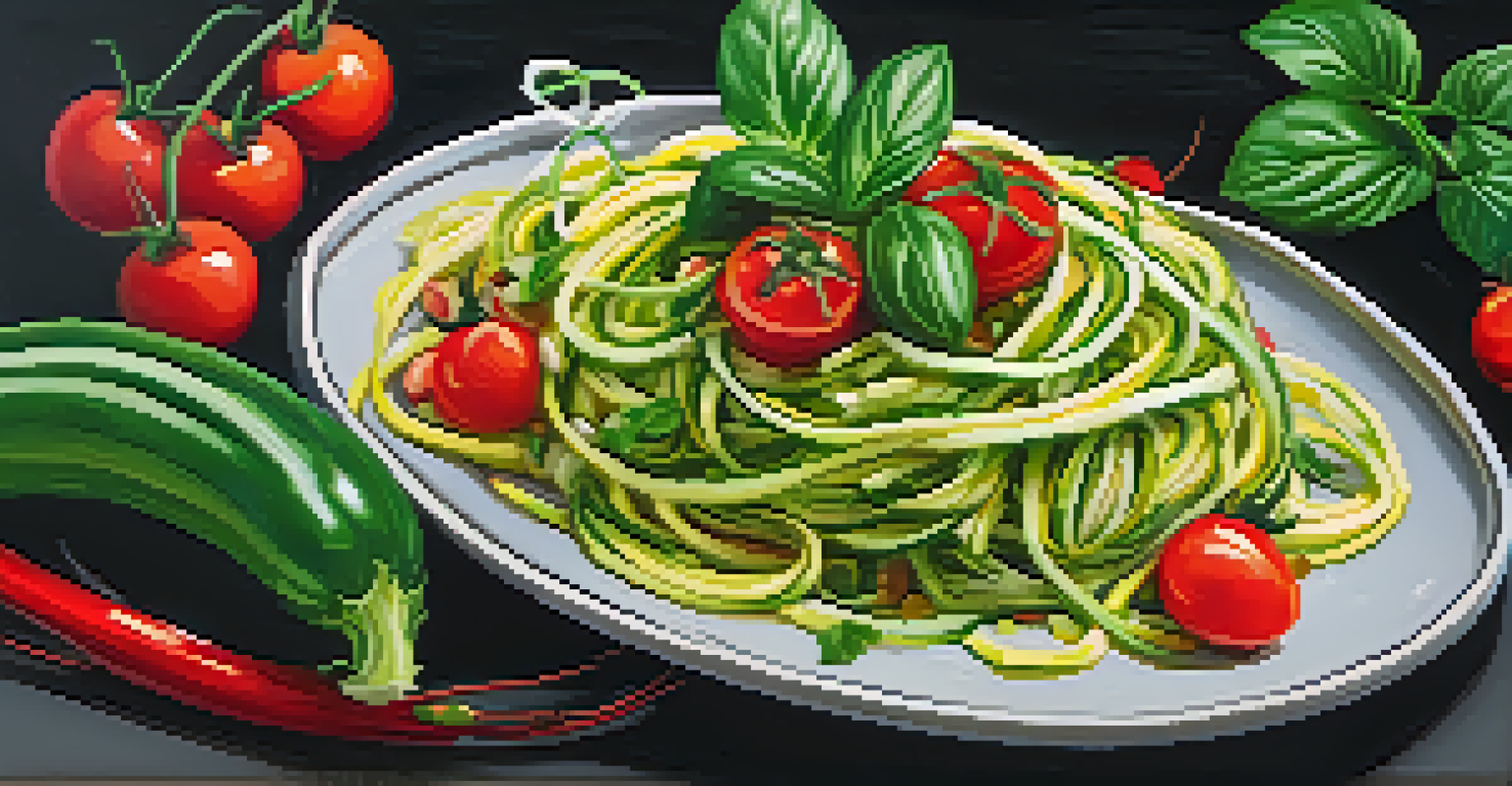Can Raw Vegan Diets Reduce Cancer Risks? A Detailed Study

Understanding Raw Vegan Diets: The Basics
A raw vegan diet consists of plant-based foods that are unprocessed and uncooked. This means you'll mainly eat fruits, vegetables, nuts, seeds, and sprouted grains. The idea is that cooking can destroy vital nutrients and enzymes that are beneficial for health.
Let food be thy medicine and medicine be thy food.
Many advocates believe that consuming food in its raw state helps in retaining the maximum amount of nutrients, which can contribute to better overall health. Vitamins, minerals, and antioxidants found in these foods are thought to play a significant role in disease prevention.
However, it's essential to approach a raw vegan diet with balance and variety in mind to ensure you’re getting all necessary nutrients. Some nutrients, like vitamin B12 and iron, might be challenging to obtain solely from raw plant sources.
The Connection Between Diet and Cancer Risk
Cancer risk can be influenced by various factors, including genetics, lifestyle, and environmental exposures. However, diet is one of the most modifiable risk factors. Research suggests that diets high in fruits and vegetables may help lower the risk of certain cancers.

Fruits and vegetables are rich in antioxidants, which help combat oxidative stress in the body. Oxidative stress is linked to cellular damage and has been implicated in cancer development. Therefore, consuming a diet rich in these foods might offer protective benefits.
Raw Vegan Diet Basics Explained
A raw vegan diet focuses on unprocessed, uncooked plant foods to maximize nutrient intake.
It's important to note that while diet plays a role, it's just one piece of the puzzle. A holistic approach that includes regular physical activity and avoiding harmful substances, like tobacco, is crucial for reducing cancer risks.
Nutrients in Raw Vegan Diets Linked to Cancer Prevention
Raw vegan diets are abundant in phytochemicals, which are compounds found in plants that have been shown to reduce inflammation and inhibit cancer cell growth. For example, cruciferous vegetables like broccoli and kale are known for their cancer-fighting properties.
The greatest wealth is health.
Additionally, the high fiber content in raw vegan diets can promote digestive health, which is increasingly recognized as important in cancer prevention. A healthy gut can help eliminate toxins and may even influence the body's immune response.
Moreover, vitamins such as vitamin C and E, commonly found in raw foods, are known for their antioxidant properties. These vitamins can neutralize free radicals, potentially lowering the risk of cancer development.
Scientific Studies on Raw Vegan Diets and Cancer
Several studies have investigated the relationship between plant-based diets and cancer risk. For instance, a study published in the Journal of Nutrition found that individuals following vegetarian diets, which often include raw vegan principles, had lower rates of certain cancers.
Another research effort indicated that diets high in fruits and vegetables could significantly lower breast and colon cancer risk. While these studies highlight a correlation, more research is needed to establish a direct causal relationship.
Diet's Role in Cancer Risk
Consuming a diet rich in fruits and vegetables may lower the risk of certain cancers due to their antioxidant properties.
It's important to consider these studies as part of a broader body of research. Diet is complex, and various dietary patterns may contribute to cancer prevention beyond just raw veganism.
Potential Risks of a Raw Vegan Diet
While raw vegan diets can be beneficial, they may also pose certain risks if not planned properly. For example, some individuals may experience nutrient deficiencies, particularly in vitamins B12 and D, calcium, and omega-3 fatty acids.
Additionally, raw foods can sometimes harbor harmful bacteria or parasites, which are usually eliminated through cooking. This can pose a risk to those with weakened immune systems or other health concerns.
Before making any significant dietary changes, it's wise to consult a healthcare professional or a registered dietitian. They can help ensure you’re meeting your nutritional needs while exploring a raw vegan lifestyle.
Incorporating Raw Vegan Foods into Your Diet
Transitioning to a raw vegan diet doesn’t have to be an all-or-nothing approach. Many individuals find success by gradually incorporating raw meals into their daily routine. Start by adding a raw salad or smoothie to your meals to boost your intake of fruits and vegetables.
Experimenting with different raw recipes can keep your diet exciting and diverse. For instance, you can try creating raw snacks like energy balls made from nuts and dried fruits, or zoodles (zucchini noodles) topped with raw marinara.
Consider Risks of Raw Veganism
While beneficial, a raw vegan diet can lead to nutrient deficiencies and health risks if not properly planned.
Moreover, joining a community or support group focused on raw veganism can provide motivation and new recipe ideas. Sharing experiences with others can help make the transition smoother and more enjoyable.
Conclusion: Weighing the Benefits and Risks
The potential of a raw vegan diet in reducing cancer risks is an intriguing area of study. While there is promising evidence suggesting that such diets can offer protective benefits due to their high nutrient content, it’s essential to approach this lifestyle with care.
Balancing your diet to avoid deficiencies while maximizing the intake of cancer-fighting nutrients is crucial. Remember, a holistic approach that includes various lifestyle factors will contribute to overall health.

Ultimately, if you're considering a raw vegan diet, do your research and consult with a healthcare professional to tailor it to your individual health needs and goals.